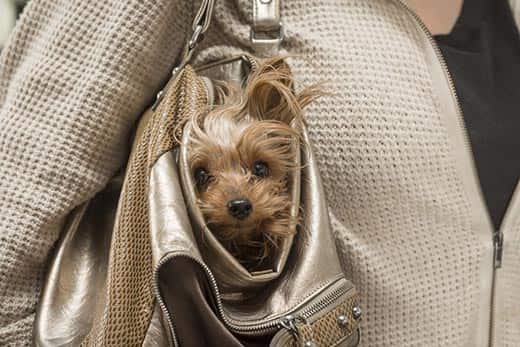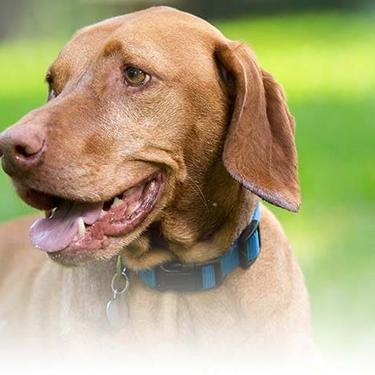
-
Find the right food for your pet
Take this quiz to see which food may be the best for your furry friend.
Find the right food for your pet
Take this quiz to see which food may be the best for your furry friend.
Featured products
 Small & Mini Savory Stew with Chicken & Vegetables Dog Food
Small & Mini Savory Stew with Chicken & Vegetables Dog FoodA delicious complement to the nutrition of Science Diet Small & Mini 7+ dog food
Shop Now Adult Healthy Cuisine Roasted Chicken, Carrots & Spinach Stew Dog Food
Adult Healthy Cuisine Roasted Chicken, Carrots & Spinach Stew Dog FoodDelicious roasted chicken paired with tender vegetables in a succulent stew
Shop Now Adult 7+ Perfect Digestion Chicken, Whole Oats & Brown Rice Recipe Dog Food
Adult 7+ Perfect Digestion Chicken, Whole Oats & Brown Rice Recipe Dog FoodScience Diet's breakthrough nutrition supports ultimate digestive well-being & healthy microbiome for dogs age 7+
Shop NowFeatured products
 Adult 7+ Tender Tuna Dinner Cat Food
Adult 7+ Tender Tuna Dinner Cat FoodWith delicious chunks in a decadent gravy
Shop Now Adult 7+ Senior Vitality Chicken & Vegetable Stew Cat Food
Adult 7+ Senior Vitality Chicken & Vegetable Stew Cat FoodImproves Everyday Ability to Get Up & Go
Shop Now Adult Savory Entrée Can Variety Pack Cat Food
Adult Savory Entrée Can Variety Pack Cat FoodPrecisely balanced nutrition with the delicious taste of savory minced chicken to help fuel the energy needs of cats during the prime of their life
Shop Now -
Dog
- Dog Tips & Articles
-
Health Category
- Weight
- Food & Environmental Sensitivities
- Urinary
- Digestive
- Joint
- Kidney
-
Life Stage
- Puppy Nutrition
- Adult Nutrition
- Senior Nutrition
Cat
- Cat Tips & Articles
-
Health Category
- Weight
- Skin & Food Sensitivities
- Urinary
- Digestive
- Kidney
-
Life Stage
- Kitten Nutrition
- Adult Nutrition
Featured articles
 Why Are Dogs and Cats So Cute?
Why Are Dogs and Cats So Cute?If waggy puppy dog tails and furry kitten yawns make you swoon, you're not alone. Why are cats so cute? And, dogs too! Let's find out!
Read More Does My Pet Hate Me?
Does My Pet Hate Me?Learn tips for bonding with your pet if you've ever thought, 'My dog doesn't like me, or 'Why do I have a standoffish cat?'
Read More Do Dogs and Cats have Belly Buttons?
Do Dogs and Cats have Belly Buttons?Learn whether cats & dogs have belly buttons like humans, what the function is, and if there are any health concerns associated with it.
Read More -


Uh oh! You accidentally left your purse out and your dog ended up chomping on a stick of gum he found buried at the bottom of the bag. Hopefully, you'll never find yourself in this situation but if you do, you'll need to act fast. Some gums contain xylitol, and xylitol in dogs can be life-threatening. Here's what to do if you think your dog may have eaten gum.
My Dog Ate Gum — Should I Be Worried?
It depends on the type of gum your dog ate. If he ate sugar-free gum, there's a definite cause for concern. Sugar-free gum contains xylitol, a sugar replacement used in many sugar-free foods; xylitol in dogs is toxic.
If the gum wasn't sugar-free, then there may be less concern, but

it's still a good idea to call their veterinarian just in case. You should also monitor your dog to make sure the gum makes its way through their system.
Symptoms of Xylitol Poisoning
As few as one or two sticks of some gums containing xylitol can be toxic to dogs of all sizes.
Cummings Veterinary Medical Center says the ingredient can cause a dangerous drop in blood sugar. The most serious cases can result in liver failure.
According to the FDA, xylitol in dogs can cause the following side effects:
- Vomiting
- Decreased activity
- Weakness
- Loss of coordination
- Collapse
- Seizures

Xylitol isn't just found in gum — it's also used in candy, toothpaste, mouthwash and other sugar-free products. It can also be found in chewable vitamins, throat drops and throat sprays. To keep your pup safe, keep all food, candy, dental products and medicine out of their reach. An upper kitchen cabinet is a good place to keep these items from even the most inquisitive dogs. Be sure to keep bags, purses, coats and any other clothing or containers well out of their reach as well. A dog explores with their nose, so any open bag or pocket is an invitation for them to stick their head in and check it out.


Tasty Tips
What to Do If Your Dog Eats Gum
If you know that your dog has ingested gum with xylitol in it, bring them to their vet or an emergency vet clinic immediately. The vet may run blood tests to determine if your dog has decreased blood glucose levels and/or elevated liver enzymes.
If you're not certain whether or not your dog ate gum, it's best to err on the side of caution and contact the vet for advice.
You know your dog will eat nearly anything, so it's your responsibility as their pet parent to be vigilant and keep all human foods and other toxic items out of their reach. Your pup doesn't know better — it's up to you to protect their health and safety.


Erin Ollila believes in the power of words and how a message can inform—and even transform—its intended audience. Her writing can be found all over the internet and in print, and includes interviews, ghostwriting, blog posts, and creative nonfiction. Erin is a geek for SEO and all things social media. She graduated from Fairfield University with an M.F.A. in Creative Writing. Reach out to her on Twitter @ReinventingErin or learn more about her at http://erinollila.com.
Related products

A delicious complement to the nutrition of Science Diet Small & Mini 7+ dog food

Delicious braised beef paired with tender vegetables in a succulent stew

Science Diet's breakthrough nutrition supports ultimate digestive well-being & healthy microbiome for dogs age 7+

Delicious roasted chicken paired with tender vegetables in a succulent stew
Related articles

Hill's Science Diet Small & Toy Breed dog foods are designed to meet the nutritional needs for your small dog at every life stage. Learn more here.

Your dog's coat and skin are a big part of your dog's overall health. Ensure you keep your dog's coat healthy, by following these simple tips.

Learn about choosing the right food for your mature or older dog, ensuring he receives the correct balance of nutrition.

Large and giant breed puppies have different nutritional needs than other dogs. Learn how to provide the special care they need to grow up big and strong.

Put your dog on a diet without them knowing
Our low calorie formula helps you control your dog's weight. It's packed with high-quality protein for building lean muscles, and made with purposeful ingredients for a flavorful, nutritious meal. Clinically proven antioxidants, Vitamin C+E, help promote a healthy immune system.
Put your dog on a diet without them knowing
Our low calorie formula helps you control your dog's weight. It's packed with high-quality protein for building lean muscles, and made with purposeful ingredients for a flavorful, nutritious meal. Clinically proven antioxidants, Vitamin C+E, help promote a healthy immune system.

